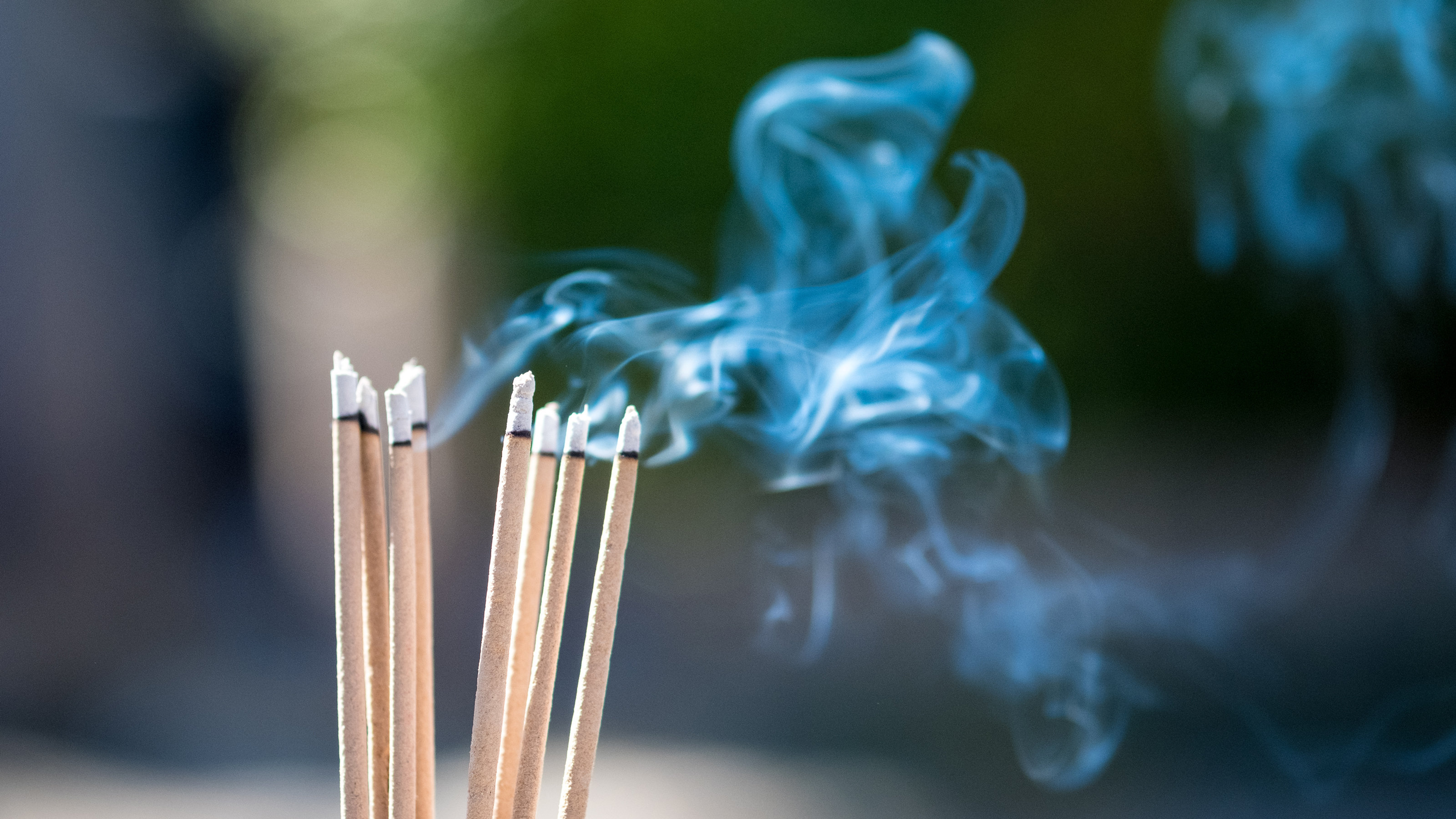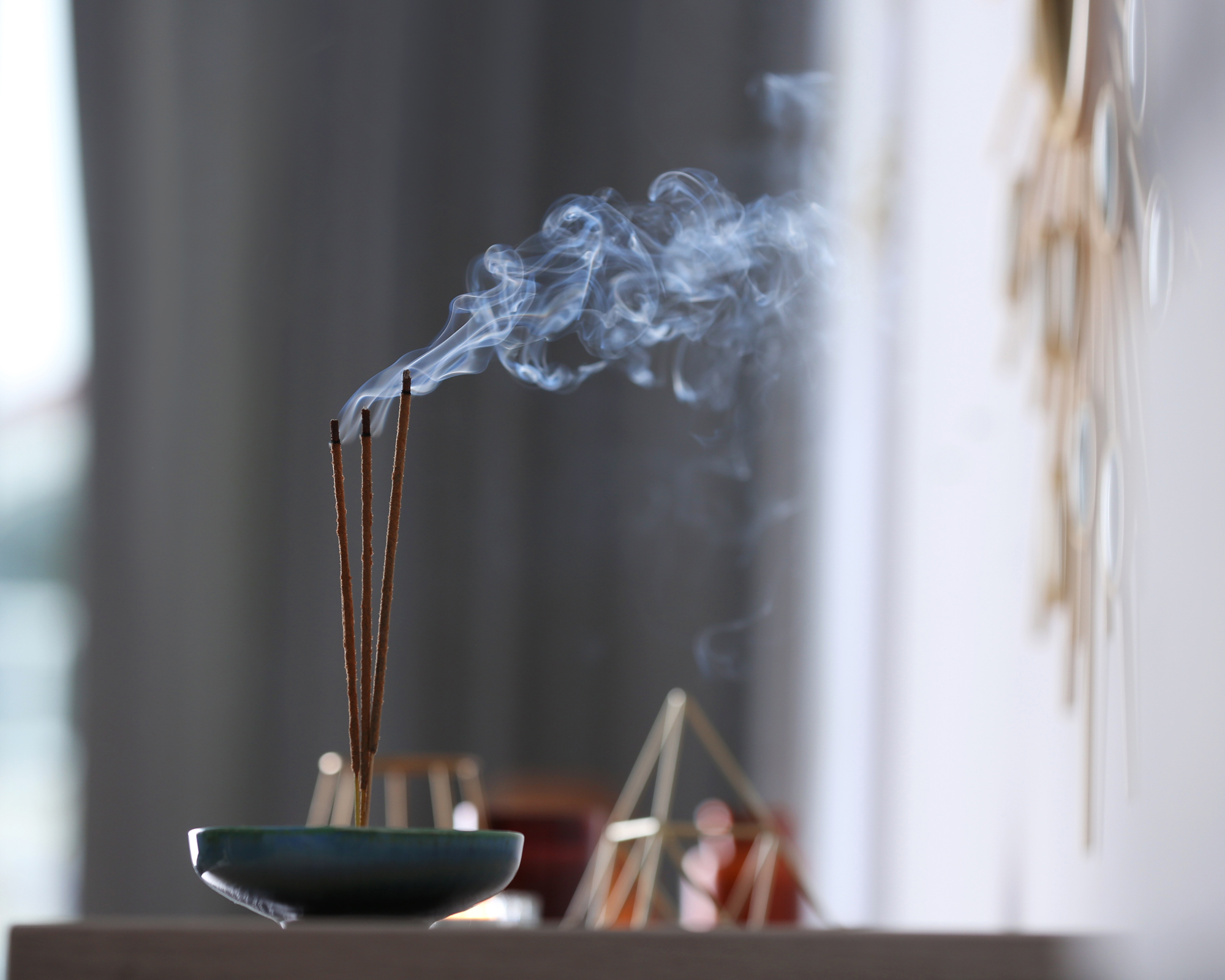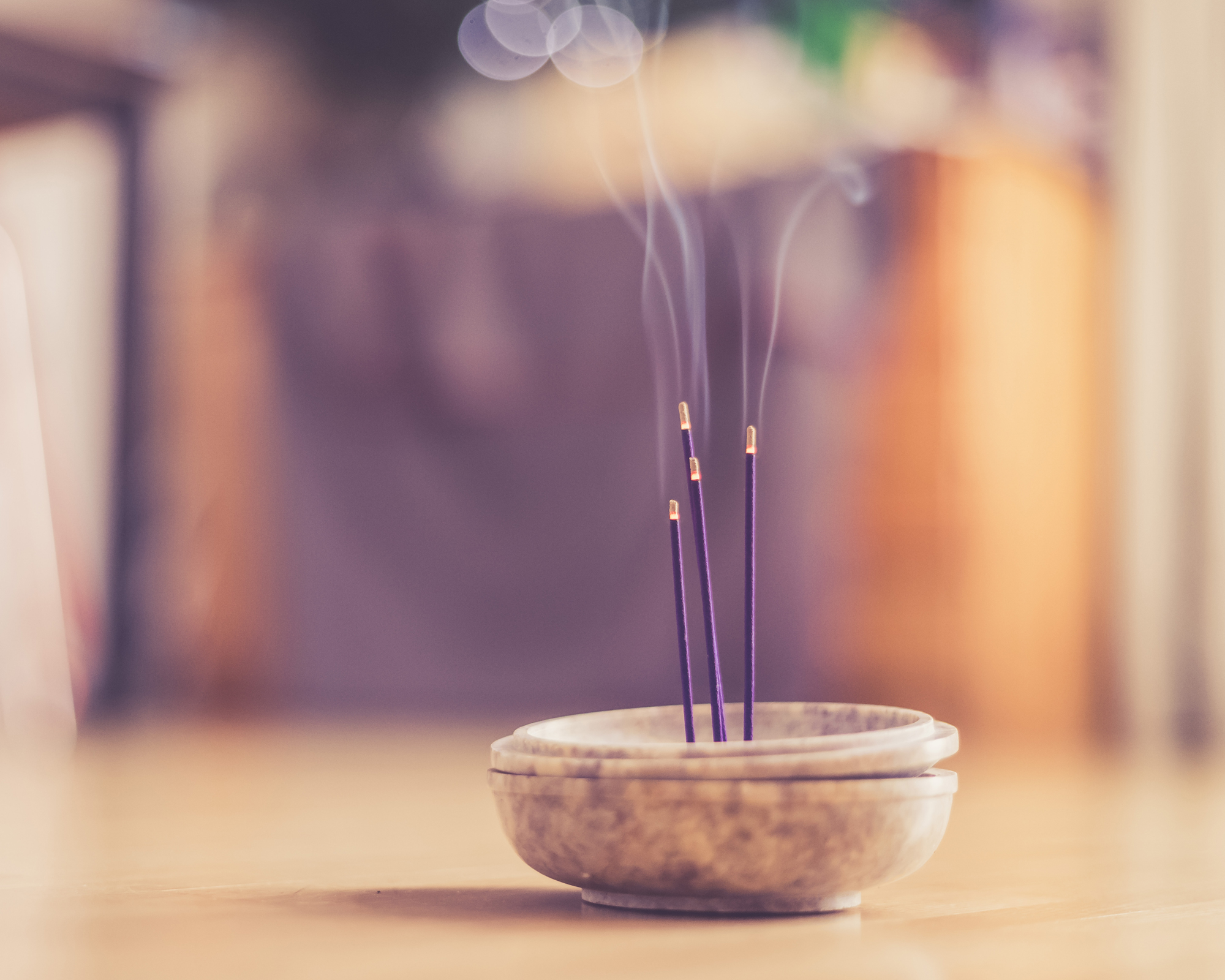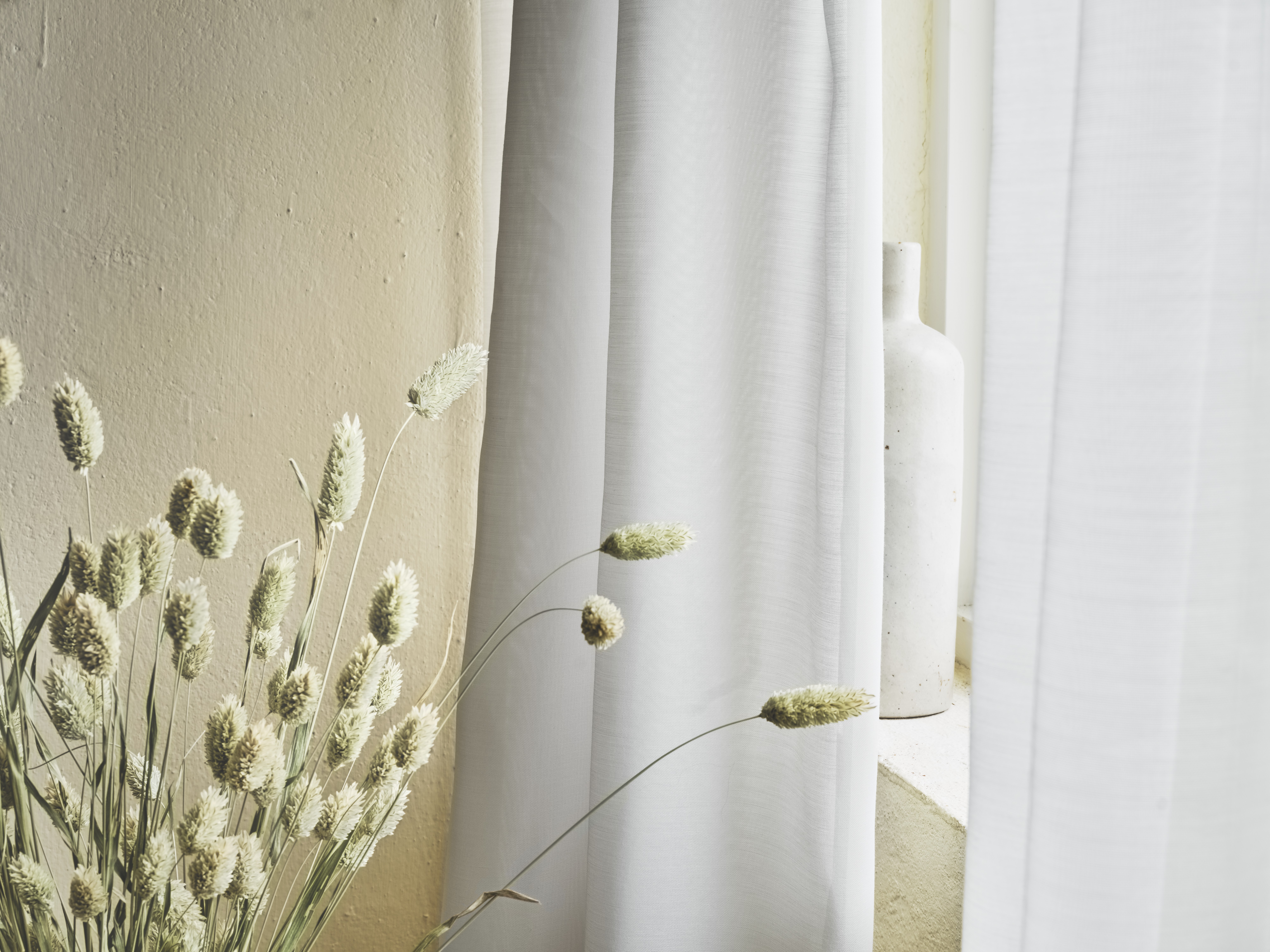
Is burning incense bad for you? For many of us, burning incense is part of a well-being ritual; for huge numbers of people around the world, burning incense is also part of their culture and spiritual traditions. The scent of incense is grounding and calming and unlike anything else: woody, resinous, and herbal at the same time.
You may be thinking of switching to incense as a form of home fragrance that's seen as more natural than reed diffusers or candles. But is incense as innocent as it seems?
In recent years, we've all learnt a lot about air pollution, both the outdoor and the indoor variety. Commonplace things like open fireplaces and firepits are now seen differently, since we know that they too contribute to air pollution. In fact, we spend a lot of time trying to improve the air quality of our homes.
How does incense stack up on this front? We've done some investigating and have consulted a couple of experts. Here's the verdict on incense.
What is incense made from?
But first, just what is incense made from? The truth is that the precise recipes of incense products are somewhat guarded by manufacturers. However, according to a 2008 study, 'a typical composition of stick incense consists of 21 percent (by weight) of herbal and wood powder, 35 percent of fragrance material, 11 percent of adhesive powder, and 33 percent of bamboo stick.'
The powders commonly used in incense making are from materials such as licorice root, cinnamon, fennel, Chinese rhubarb, and magnolia bark. The fragrant component can be from essential oils, musks, and resins, including moneywort, tree gums, sandalwood, and cedarwood.
The musks typically used nowadays are synthetic, as real musk derived from the musk deer is prohibitively expensive. Synthetic sandalwood is also very common, as again, real sandalwood is now incredibly rare and expensive and only really used in some perfume.
The adhesive part of incense is made from tree bark.
Overall, so far so good. There is nothing especially problematic about the ingredients in your typical incense stick, coil, or cone, unless you are allergic to essential oils or cinnamon. However, it's when incense is being burned that it can become problematic.
Is incense burning bad for you?
Unfortunately, on the evidence that we have, yes. What we don't know for sure is just how bad for you it is, or at what concentrations, but the harmful effects of long-term incense burning are well-documented.
When incense is burned the smoke it produces contains both chemical fumes and particulate matter (you'll have heard of this one if you live in a big city), and the two are linked to harmful effects on human health.
Several studies have shown that incense burning can be considered an 'important or even major source of residential indoor particulate matter' alongside burning wood, candles, and smoking cigarettes. Regularly inhaling particulate matter has been linked to respiratory problems and even lung cancer, although it is important to stress that there is no evidence right now that proves that burning incense alone causes cancer.
The fumes generated by incense also potentially pose health risks. 'The gas products from burning incense include carbon monoxide, carbon dioxide, nitrogen dioxide, sulfur dioxide, and others. Incense burning also produces volatile organic compounds, such as benzene, toluene, and xylenes, as well as aldehydes and polycyclic aromatic hydrocarbons (PAHs).'
These byproducts of incense smoke can cause anything from respiratory symptoms such as coughing and wheezing to eye irritation, allergic skin reactions, and headaches.

What does this evidence really tell us? It tells us that constant incense burning is likely to have an irritating effect on your respiratory system, even if it doesn't cause chronic illness. Another study, also from 2008, points out that 'the air pollution in and around various temples has been documented to have harmful effects on health. When incense smoke pollutants are inhaled, they cause respiratory system dysfunction.'
Of course, if you don't frequent a temple where incense is regularly burned, but burn incense occasionally in your home, the risks are much smaller. Still, Catherine Cabano, the founder of In On Around, a holistic health consultancy, urges caution when using incense – 'always ensure that there is proper ventilation – keep your windows open and any air purifiers on high.'
She reminds potential incense users that 'indoor air pollution can oftentimes be even more severe than outdoor air pollution (depending on your area), so it is best to skip the incense to prevent polluting your home.'
Incense is also a no-go if you are pregnant or breastfeeding. You should also avoid it if you have a known respiratory health condition such as asthma. Otherwise, if you really like the smell of incense and haven't experienced adverse effects before, you can enjoy it every once in a while, with the window open. Getting an air purifier to reduce the amount of pollution incense creates in your home is also a very good idea.
Is incense bad for dogs and cats?
Yes. Unfortunately, incense is bad for our pets. Elina Agnati is the owner of a pet and wildlife site WhatAnimalsEat.com. She urges pet owners against burning incense in rooms where their pets are present, as 'their airways are a lot more sensitive than humans, and they can react poorly to the smoke that is created.'
Like humans, pets can have chronic respiratory health conditions: 'If your pet also has an underlying respiratory problem, incense can make the problem worse, or cause it to flare up.'
Just how bad incense is for dogs also depends on the breed: 'Short snout dogs like pugs, bulldogs or Shih Tzus can also be more sensitive than other dogs.' The same will go for Persian cats.
Agnati's general advice is: 'If you still want to burn incense in your home, pay close attention to how your pet is reacting. Also, take your precautions and ventilate the room well, place the incense at a spot the animal can't reach easily or even use a room where they're not allowed if that's possible.'

Still want to enjoy a lovely home fragrance without those microparticles and VOCs? Go for a nice reed diffuser or essential oil diffuser instead. And if you want a completely natural home purifying ritual, open all your windows and doors and burn a bunch of sage – it's much safer than incense.
Join our newsletter
Get small space home decor ideas, celeb inspiration, DIY tips and more, straight to your inbox!
Anna is a professional writer with many years of experience. She has a passion for contemporary home decor and gardening. She covers a range of topics, from practical advice to interior and garden design.
-
 Here's where to buy antibacterial wipes – and 5 places you MUSTN'T use them
Here's where to buy antibacterial wipes – and 5 places you MUSTN'T use themWe've rounded up all the stores selling antibacterial wipes online – and with stock! Stay home, stay safe
By Hebe Hatton
-
 How to clean a keyboard
How to clean a keyboardYour keyboard is a breeding ground for bacteria. If you're concerned about Coronavirus or spreading germs, giving it a good clean won't hurt
By Emily Shaw
-
 How to disinfect your bedroom if you've had flu or Coronavirus
How to disinfect your bedroom if you've had flu or CoronavirusThese bedroom cleaning tips will help you ensure that your bedroom is germ-free after you've been ill
By Anna Cottrell
-
 These new Ikea curtains reduce the air pollution in your home – whatever next?!
These new Ikea curtains reduce the air pollution in your home – whatever next?!Meet the GUNRID Ikea curtains, the first curtains that can purify air (and beautify your space)
By Hebe Hatton